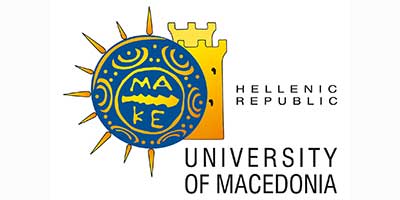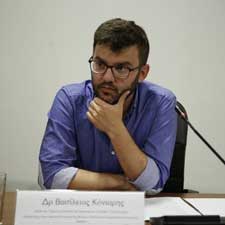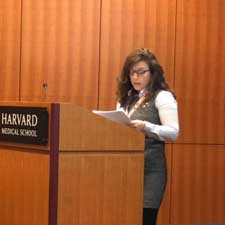Program Summary
The program is an opportunity for a comparative research approach to the current institutional framework and the specific characteristics of the internship programs of the Greek higher education institutions, while at the same time an opportunity to explore the degree of their harmonization with the European institutional context. In addition, the research process, by capturing the perceptions of social partners regarding specific WEP initiatives, will use the findings to formulate proposals that will enable the more active participation of the business world in a broader context of action related to the transition of young people to the job market. A similar research approach has not been carried out in the past in Greece. For this reason, the proposed project can lay the groundwork for a broader consultation process aimed at institutional and operational empowerment of work experience programs in the Greek Universities.


RESEARCH TEAM
The composition of the research team was based on the know-how and experience (academic, research and professional) of the members, which can be used to carry out the project. Thus, all members, in addition to their contribution to bibliographic research and the knowledge of the institutional framework of university internship programs, contribute to the design of research with the social partners, to the analysis and dissemination of results, and to the final formulation of policy proposals.
Program Description
The object of the research project are the internship programs organized for students by the specialized structures of the Greek Higher Education Institutions (HEIs). These programs support students in order to get in touch with the job market, to test their theoretical knowledge in the real work environment and to gain the professional experience that is valuable and necessary for their future careers.
The main purpose of the project is to strengthen communication and interaction between universities and social partners, in order to maximize their contribution to the design and implementation of internship programs. For this reason, the research approach is organized on two axes. The first axis concerns the institutional framework governing the internship programs offered by Greek higher education institutions; the second axis concerns the verification of perceptions and conditions of participation of social partners – employers and employees – in matters relating to internships in University education. The following are the specific research objectives of each axis:
First axis: Comparative investigation of the institutional framework.
- Highlighting the convergences, differences and peculiarities of the programs regarding the organization, implementation and safeguarding of their quality characteristics.
- Investigating the existence and scope of the internship of Greek internship programs compared to the framework for internships and related guidelines promoted by the European Union.
- Recording and analysis of regulatory frameworks according to which the organization and management of internship programs for students in each institution of higher education takes place. The pursuit of this goal is the final configuration of a single standard with quality features and the ability to adapt to the European institutional context.
- Clarification of the procedures by which the skills of the executives of the university internship structures are updated and the international experience is utilized.
Second axis: Social partners
The investigation will be carried out at the level of associations of employers and employees at national and European level (eg SEV, GSEVEE, GSEE, ADEDY, BusinessEurope, UEAPME, CEEP, ETUC, etc.), as well as in Greek companies. This includes the use of questionnaires or interviews.
- Recording of perceptions, as well as the participation framework of social partners regarding the organization and implementation of internship programs for higher education students.
- Recording the perceptions and attitudes of social partners regarding work-based learning (WBL).
- Recording the expectations and suggestions of the social partners regarding the functional improvement of the existing systems, but also regarding the formation of an attractive and reliable incentive system, which could lead to upgrading their participation and improving the efficiency of the programs.
- Design a supportive action framework, such as career counseling, mentoring training in academia and the workplace, etc. These actions will require the active participation of social partners, facilitate communication with the labor market and ensure their quality characteristics.









